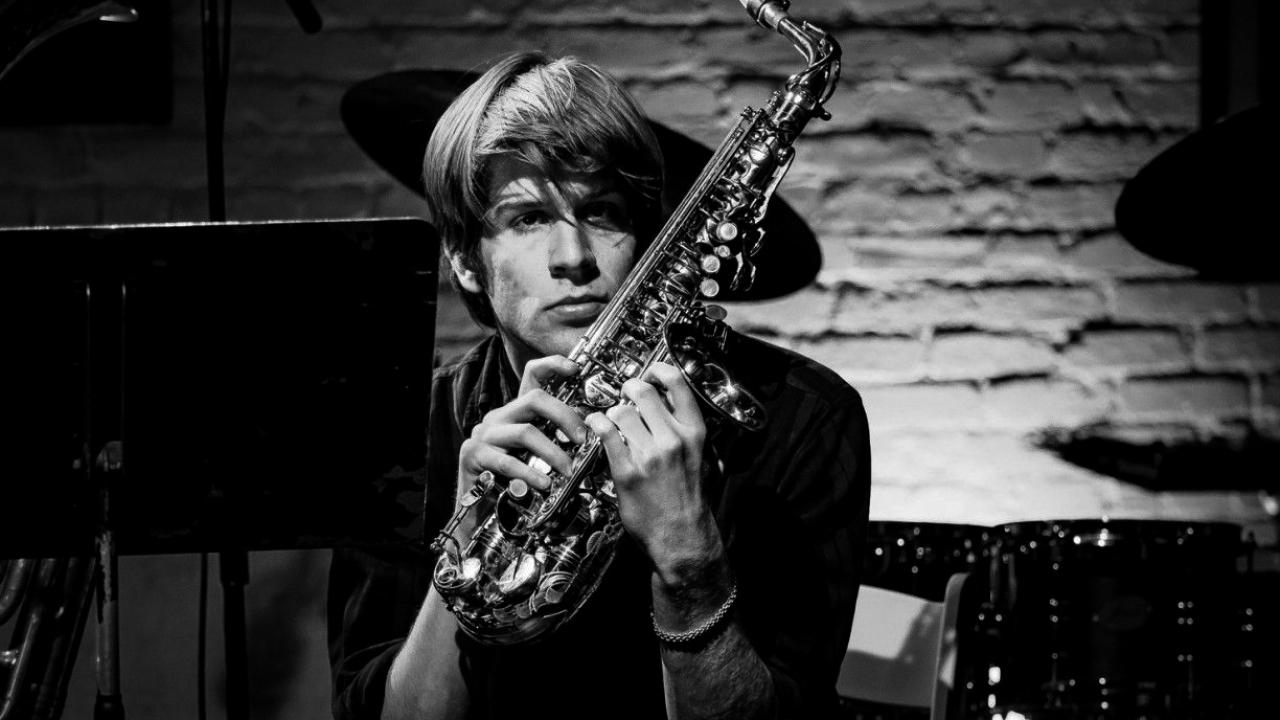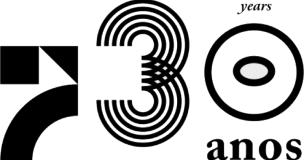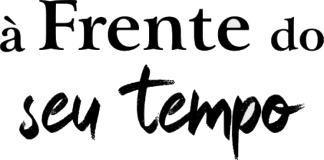Chris Pitsiokos — An Un-Unified Theory of Nothing

Chris Pitsiokos é um músico bastante ativo no mundo da música experimental entre Nova Iorque e Berlim, e lançou recentemente o álbum Irrational Rhythms and Shifting Poles para saxofone e espacialização sonora. Pitsiokos estará na Universidade de Coimbra a apresentar a sua comunicação An Un-Unified Theory of Nothing. Esta apresentação terá lugar no dia 15 de março de 2024 e está integrada no âmbito de um ciclo de Composição, Improvisação, e Música Experimental (Workshops, Palestras, Debates), organizado pelo CEIS20 no âmbito das Afinidades Disciplinares. Este ciclo conta com o apoio do LIPA e da unidade curricular “Escuta, Análise e Imaginação”, inserindo-se na missão de investigação interdisciplinar do CEIS20 e nos objetivos do Grupo 4 — Práticas Artísticas: Imaginação, Materialidades, Transições, assim como na estratégia de desenvolvimento do projeto IIMPAQCT, nomeadamente na criação de oportunidades de interação e exploração interdisciplinar e teórico-prática, sobre os processos de criação artística.
Data 15 de março de 2024
Horário 10h
Local Colégio de São Jerónimo, Sala EA01
Leia a sinopse e a biografia do investigador em seguida.
(Nota de agradecimento a Pedro Martins pela cedência de equipamento)
Chris Pitsiokos visits UC to deliver a talk about composition and improvisation in experimental music. The talk will focus on the dynamics of articulating and communicating compositional ideas when working with other musicians, as well as the evolution of his compositional process when working solo. Chris will also discuss his new solo work for saxophone and 4 channel speakers and present a demo. The session will include open-ended discussion with the attendees. This presentation is aimed at the CEIS20 and CISUC researchers, and the UC community, interested in interdisciplinarity, music, sound, and practice-based research.
Date: 2024-03-15
Time: 10am
Place: Colégio de São Jerónimo, Room EA01
Synopsis
Music composition is often thought of as a formalized set of instructions defined and executed before the performance, usually even before the first rehearsal. However, when we include traditions outside of Western Classical music, which for unfortunate reasons is in large part the only thing people think of when they think of “composition,” we must broaden our definition to include any instructions given to a performer. The performance, then, is any interpretation of those instructions. When we think of composition like this, we quickly realize that our first definition is totally inadequate. In many cases, for instance in so-called jazz music, the composer/bandleader is involved in a complex and dynamic back and forth between the other performers in the group. Even in the cases when there are notes committed to paper (and often there weren’t and aren’t), we must take a broader view of composition here to understand how instructions are given and the resulting music is generated. Of course in all cases a composition is also contextually dependent upon the history and culture to which it belongs.
While each composer has his or her own unique way of dealing with all of these issues, few, to my knowledge, think of the determination of these parameters as a crucial decision not just in their general practice, but as the first step in each composition.
I often have thought of the making of film as a useful analogy. In my limited interaction with directors, and knowledge of directors’ processes, I have already found several examples of directors who think critically about how they interact with their actors/actresses formally and psychologically in order to get the results they want. A single director in the course of a single scene might for instance, ask actors/actresses to work from the script precisely, then ask them to improvise using the script, then give them instructions in real time (which can be edited out from the sound later). We also have famous examples (like Kubrick and Herzog) who intentionally put their actors and actresses in psychologically stressful environments in order to get a certain result (the ethics of this are another matter, but we can table that for now). To me it seems that this kind of thing is much more nuanced and developed in film than in music, where musicians very often limit themselves to one, or a couple of methods of composition rather than hybridized forms. The very form our instruction-giving (i.e. composition) takes plays a crucial role in the kind of music that is created.
Chris Pitsiokos, January 2024
Read more: Pitsiokos, Chris. 2020. “Combination Locks: Hybrid Processes in 20th and 21st Century Creative Music.” Master of Arts, Middletown, CT, USA: Wesleyan University. https://doi.org/10.14418/wes01.2.278.
Speaker Bio
Chris Pitsiokos (b. 1990) is a New York/Berlin-based saxophonist, composer and improviser. While Pitsiokos does not concern himself with genre, broadly speaking his music falls under the umbrella of experimentalism, including noise, improvised music, experimental jazz, free jazz, noise rock, new music, minimal music, drone and art rock. As a soloist he has developed a unique voice on the alto saxophone: his expansion of the instrument’s vocabulary has served to multiply its emotive and formal possibilities. He has recorded over 30 albums as a leader or co-leader.
As a bandleader and soloist, he has toured in Japan, the US, South America and Europe. In 2016 he was a resident at John Zorn’s club the Stone and contributed to Arcana, a series of books edited by Zorn. In 2017 he had a solo concert at ISSUE Project Room in New York, toured Europe with CP Unit for the first time, and toured Japan as a soloist and performed with luminaries Otomo Yoshihide, Sachiko M, Tatsuya Yoshida, Makigami Koichi, and Jojo Hiroshige (Hijokaidan). 2018 was marked by a busy festival touring schedule, including (but not limited to) two European tours with CP Unit and a duo tour with Otomo Yoshihide. In 2019 Chris toured South America for the first time and completed a 21-show solo tour of Canada and the US. His touring has taken him to major international festivals such as Sapporo International Arts Festival in Japan, Moers Festival in Germany, Jazz Jantar in Poland, Jazz Festival Lima in Peru, Wels Unlimited Music Festival in Austria, Meteo Mulhouse Festival in France, and Jazz Cerkno in Slovenia, to name a few among many. In 2020 and 2021, despite the pandemic, Chris organized various outdoor guerilla shows in Brooklyn. Since 2021 he has returned to his busy touring schedule, mostly as a soloist, with various improvised music groups, with Otomo Yoshihide, and with ROKC Music, a collaborative quartet with Oli Steidle, Kalle Kalima, and Ronny Graupe. In February 2023 he premiered a new piece, “Irrational Rhythms and Shifting Poles” for alto saxophone, computer, and four speakers. He has also worked with Axel Dörner, Mazen Kerbaj, Tony Buck, Wendy Eisenberg, Nate Wooley, Miya Masaoka, Paul Lytton, Peter Evans, Weasel Walter, Jaimie Branch, and Tyshawn Sorey.
Pitsiokos serves on the Editorial Board of, and writes for, Sound American.
www.chrispitsiokos.com





